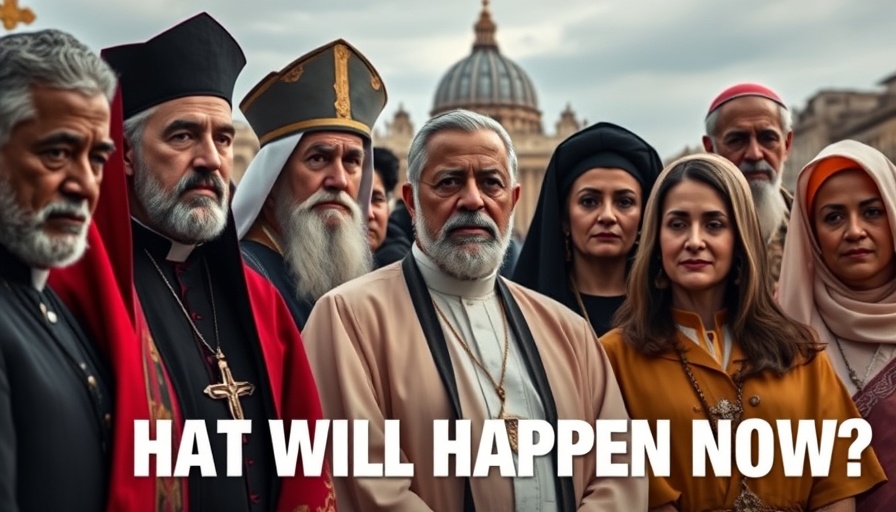
The Future of the Papacy: Insights on Who May Lead the Catholic Church
As the world mourns the passing of Pope Francis, the focus now turns to the conclave—the gathering that will select the next Pope of the Catholic Church. Historically, this event has been highlighted in various cultural contexts, making it symbolic yet relatable, reflecting the essential question of leadership in faith amidst global challenges.
In 'Who Will Be the Next Pope of the Catholic Church?', the discussion dives into the importance of the upcoming conclave, exploring key insights on potential candidates and implications for millions worldwide.
Understanding the Conclave: A Historical Perspective
The conclave is not merely a meeting but a pivotal moment in Catholic history. Originating in the 13th century, it was born out of necessity during a period when a papal vacancy lasted nearly three years, prompting Church leaders to ensure swifter decisions by locking cardinals in an environment stripped of distractions. This time-honored tradition aims to invoke divine guidance as the cardinals seek the next leader, echoing a shared belief in the impact of faith in governance.
Contenders for the Papal Throne: Who Are the Candidates?
The College of Cardinals presents a mixed bag of candidates, some aligned closely with Pope Francis's progressive ideals while others align with traditional doctrines. Key figures include:
- Anders Arborelius: At 75, this Swedish cardinal advocates for progressive issues like women's advisory roles in the Church and refugee acceptance. His Lutheran roots add a unique perspective to his Catholic service.
- Charles Mongbo: This 76-year-old Myanmar cardinal stands against military oppression and has been recognized for his firm stance on human rights, embodying the Church's global social responsibility.
- Luis Antonio Tagle: Hailing from Manila and considered a frontrunner, the 67-year-old is seen as a continuation of Francis's progressive policies, bringing attention to inclusivity and understanding within Church teachings regarding LGBTQ+ individuals.
- Peter Erdo: A more conservative choice, the archbishop of Budapest has previously been critical of Pope Francis's leniency towards same-sex couples. His candidacy adds an essential balance to the spectrum of beliefs within the Church.
Amidst this lineup, the selection of the next Pope will have significant implications, and the world, especially the billion Catholics, watches closely.
The Broader Implication of Papal Selection
The decision on who the next Pope will be goes beyond the confines of the Vatican. The implications of this choice resonate globally, affecting discussions around democracy, freedom, and the role of religious leadership in modern society. As the Catholic Church navigates current ethical conversations, particularly regarding issues like abortion and marriage, the Pope's voice will significantly shape the narrative around these topics, potentially influencing public opinion and policy.
Echoes of Change: Adapting Traditions for Today's World
Catholics around the globe are hoping for a leader who embodies love, compassion, and modernity while holding true to fundamental beliefs. It suggests a necessary evolution in how faith interacts with contemporary challenges, including economic disparities and social injustices. The upcoming conclave illustrates how the Church navigates its ancient roots while aspiring to address the current realities.
A Call to Reflect on Leadership and Values
As discussions around the conclave intensify, it is also a moment to reflect on the qualities of leadership that resonate with today's values. The new Pope's ability to unite, inspire, and lead Democrats and Republicans alike in fundamental rights will be crucial. While discussing the next Pope, let's remember that the leadership qualities championed by the Church also mirror the qualities we seek in wider society—a narrative of love, support for families, and a respectful dialogue in fostering understanding among various beliefs.
The announcements following the conclave will certainly draw considerable public interest, instigating conversations not only within the Church but also across society as we ponder the ethical and moral direction we want to embrace.
 Add Row
Add Row  Add
Add 




Write A Comment